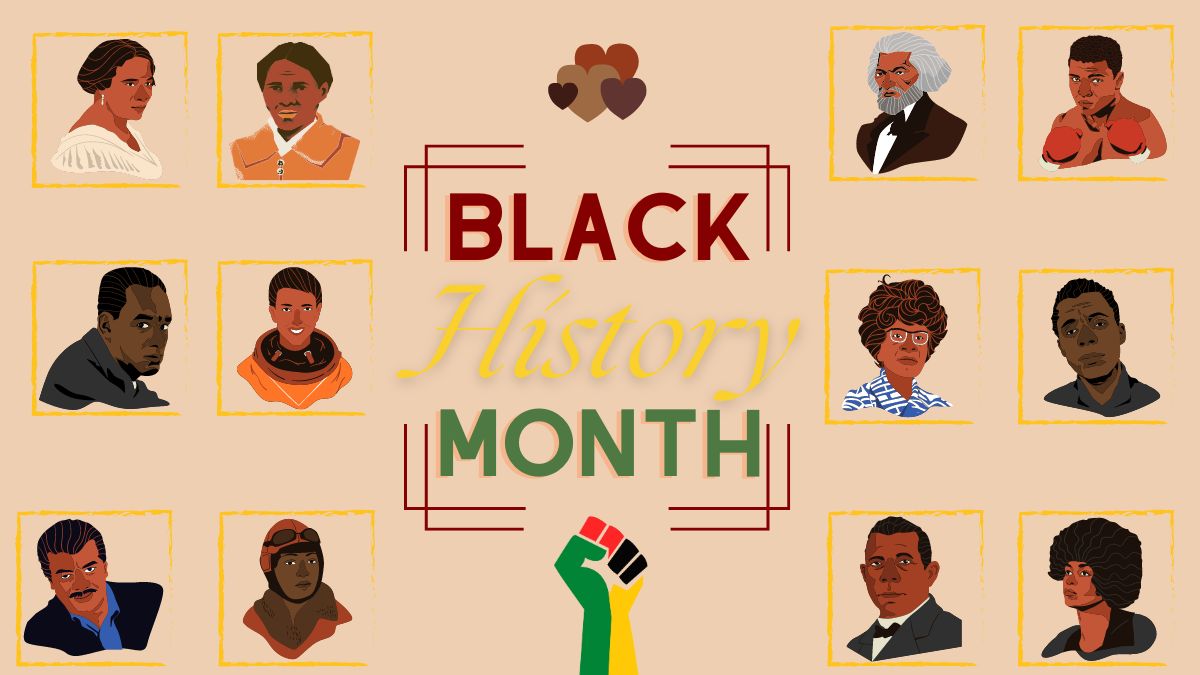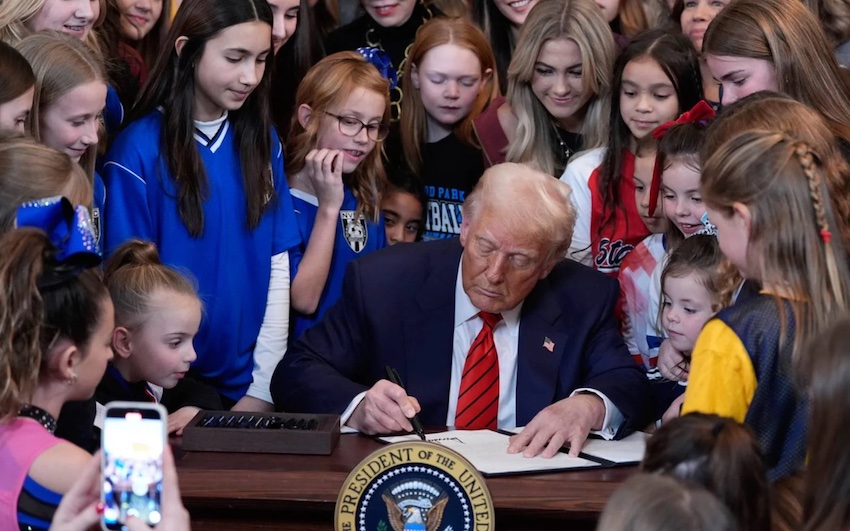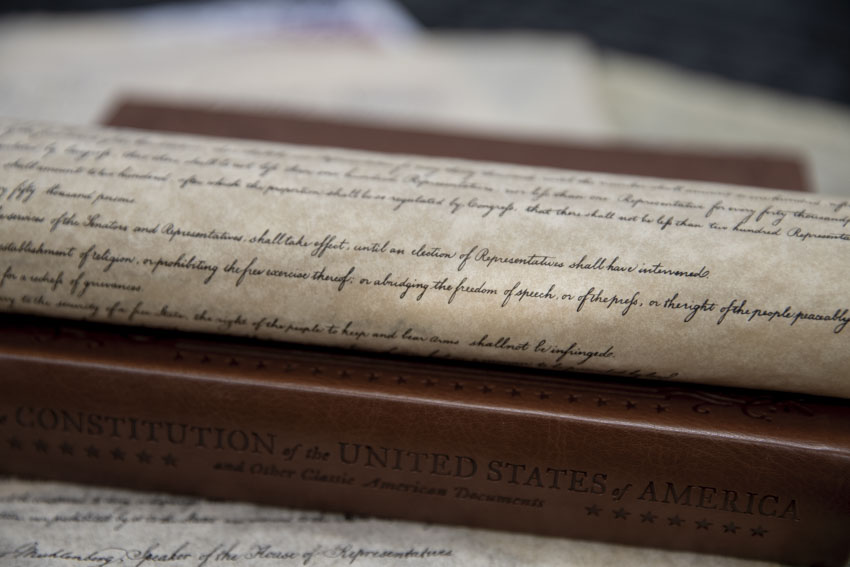The 28 days of February (29 during a leap year) are marked off to celebrate the legacy of past, present, and future black artists, soldiers, writers, activists, and all around heroes.
A designated time to celebrate Black history was the brain child of Carter G. Woodson, the founder of the Association for the Study of African American History, who recognized that very little was being done to record or celebrate black life and accomplishments. Woodson not only established an institution dedicated to black excellence, but launched Negro History Week in 1926. Woodson’s heart was to make sure the work and achievements of his people in the United States was not erased from history.
Woodson’s week to celebrate all achievements formed from the shackled hands of Black Americans was originally the second week of February, around the time President Abraham Lincoln and American abolitionist Frederick Douglass were born.
On the 50th anniversary of Negro History Week, America declared a shift from a Negro History Week to Black History Month. The first president to officially recognize the spirit of Black History Month was President Gerald Ford, who endorsed the month as “a healthy awareness on the part of all of us of achievements that have too long been obscured and unsung.”
Black History Month has been recognized and officially preserved by every succeeding president, including current President Joe Biden.
Is Black History Month just for Black Americans?
Woodson’s original purpose of Negro History Week – later expanded to cover a month – was to give students the opportunity to showcase the black history they had learned during the school year.
The initial idea Woodson had for the history week and even the month has been distorted and lost in translation since the announcement of the first celebration in 1926.
Black History Month has been seen as the only month to learn about Black Americans who have made an impact on America. We typically focus on the same people. The annual days of February lift high the legacies of Martin Luther King Jr., Harriet Tubman, Rosa Parks. MLK. Harriet. Parks. MLK. Harriet. Parks.
These are people certainly worthy of recognition and celebration, but there are other Blacks who have and continue to contribute in important ways.
Many people of color have withdrawn their support and celebration of the month due to society’s continual distortion of the true objective of Black History Month.
Many people of color have even withdrawn their support and celebration of the month, believing that their history, their people’s history is far more deserving than the mere 28 days February has to offer.
Instead of being content with cramming the lives of great minds and souls into 28 days, America needs to utilize the Black History Month as a stepping stone to achieve a society that recognizes, celebrates, and learns about all racial history and not bind it to a monthly time frame.
This is not to say that Black History Month should be abolished. However, it is to highlight how America allows fears, discomfort, and other factors to stunt the education of American children by spoon feeding them repeated information about the same Black historical figures all their lives.

The month should be a time for all communities to come together to celebrate the accomplishments of their fellow Americans, not simply to satisfy a diversity criteria America has set for itself.
Lack of celebration on campus discourages students
On our campus, there is little evidence that it is Black History Month. Although the percentage of Black and other non-white races students is low, that does not excuse the lack of representation and recognition of the month.
As a school, we have the opportunity to display and celebrate the contributions of Black Americans that benefit everyone on campus. Teaching and displaying Black History not only provides students with a more accurate understanding of America’s past, but can help instill empathy for those around them.
A more complete and accurate understanding of history will deepen a student’s comprehension of the issues that still plague this great nation and may even give context for a solution.
Classes like U.S. History, English, and Math touch on some Black History throughout the year. Kristina Breasher’s math classes watch the 2017 film “Hidden Figures.” The class not only explores the math aspects of the film but discuss the challenges women and women of color face in mathematics.
Kori James’s U.S. History class weaves ethnic conversations throughout each era of the curriculum and uses the Civil War, reconstruction and the Civil Rights Era to highlight intolerance and the connections from the past to present.
Although Black History is discussed, there is little celebration, especially in the upper grades, which is noticeable and negatively impacts students of color. Their school seems to be ignoring part of their history.
We would like to propose some suggestions and ideas for how to authentically celebrate Black History Month at our school:
Suggestions for Campus Activities
- We could invite a diversity of chapel speakers, especially local pastors and leaders, and parents, who are people of color.
- We could have a bulletin board featuring a quote of the day by a memorable Black hero.
- We could have a Black History Month rally with guest speakers and music or local food trucks that feature diverse foods.
- We could speak and read more about Black accomplishments in various classes, particularly Black heroes of Christian faith.
- We could host more frequent training for faculty, staff and student leaders to foster healthy conversations about race.
- We could host a book club or movie night for our community.
This is not an exhaustive list, but it’s meant to spark creativity moving forward. We are excited about learning more together.
How would you like to see diversity celebrated on Fresno Christian’s campus? Leave a comment below!
To read more about Black historical figures visit The Feather series, Black History Month spotlight: Shirley Chisholm leads in politics or Black History Month spotlight: Ruby Bridges integrates schools













Ethan • Feb 21, 2024 at 7:17 pm
Such a great topic to see being talked about and I hope there will be a way that these amazing people who have shaped many things in America’s history to be recognized and appreciated on campus! I really liked the ideas of holding a rally or even putting up quotes by people of color who have impacted the country in an amazing way. Hopefully this will inspire the school and others to do more!
Brooke L Criswell • Feb 21, 2024 at 7:06 pm
Bravo to this editorial team who say the hard things with a goal of equity, love, and celebration of ALL people.
Marcus • Feb 21, 2024 at 6:44 pm
This is amazing article and so proud of all of you for this. As a young black Pastor in a majority white area this excites me that this is a conversation being had. To me, Black history month should be talked about in different terms but the same way that Valentine’s Day is talked about. If we have a significant other that we only use Valentines day to express our love, it would continue to be limited. Although black history month is different than Valentine’s Day obviously, this should be a conversation that’s bigger than just one month or else unintentionally we will limit the purpose of this time to 28 days, instead of a safe place for ongoing conversation. Specifically at a school like Fcs celebrating black history month is not for black students but more so the ability to celebrate the beauty of diversity. This month is exciting because its not about celebrating the color of skin but the diverse of thought, fashion, music, food and how no matter the odds that are against you there is greatness in all people.